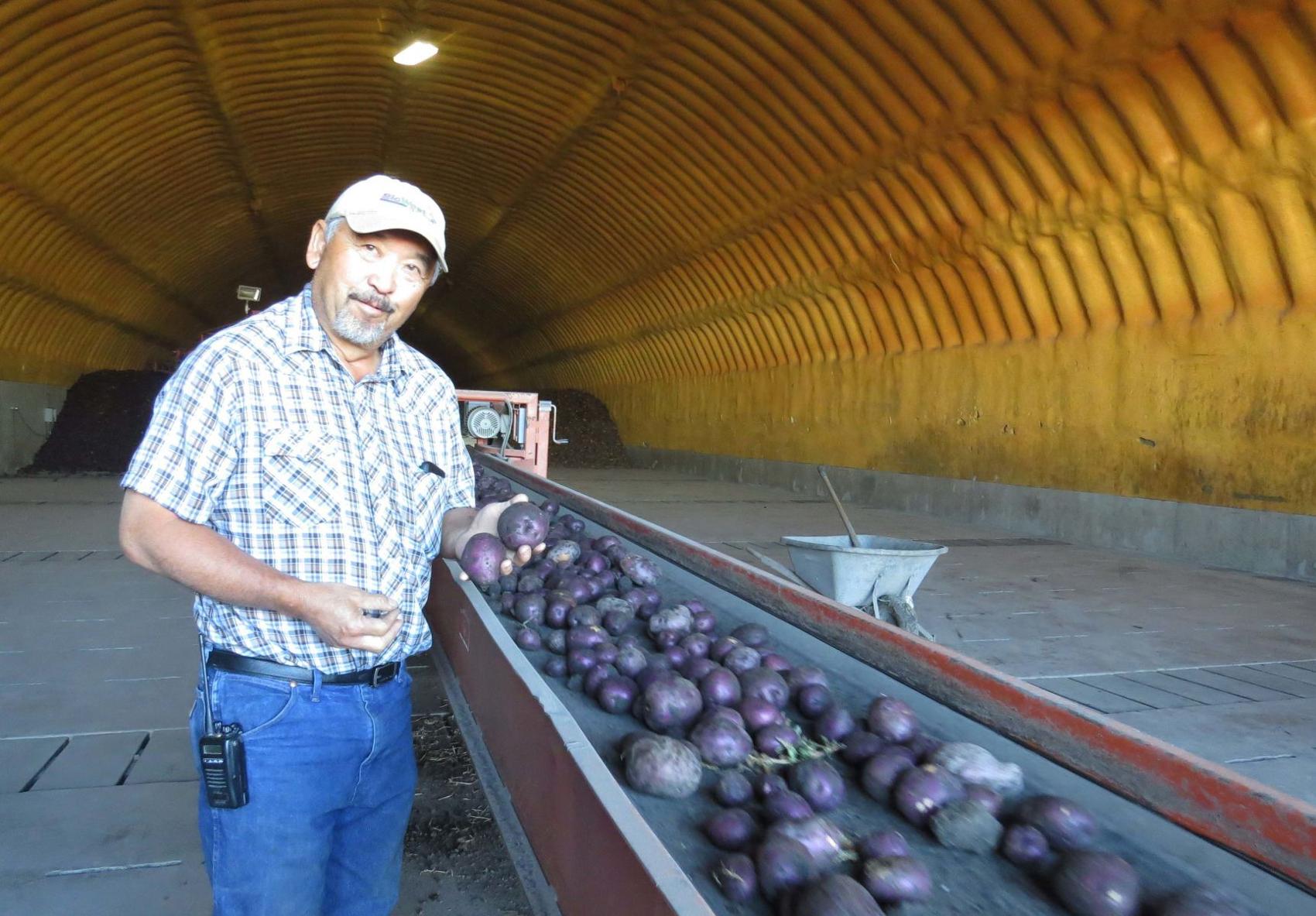A Merrill, Ore.-based potato processing plant that reported several COVID-19 cases to Oregon Health Authority is back in full operation, with all employees recovered and back on the job.
Wong Potatoes reported five cases among employees of the business on April 20, one of the first locations in the state to have multiple cases.
Owner Dan Chin temporarily closed the operation, which employs 40 people, to contain the spread of the virus. But now three months later, the plant is currently open and operating, despite a difficult water year.
Chin said a couple, two longtime workers at Wong Potatoes, had likely contracted the virus from their child.
“They brought it to the shed before they knew they really had it,” Chin told The Herald and News.
Three other employees also tested positive for COVID-19.
At the time, Chin closed the potato plant for one week and all employees were tested for the virus.
“It was contained at five, it was all we had,” Chin said. “Those five have since recovered. They came back to work two weeks later and they’re all fine.
“It’s one of them things, you never know where it’s going to come from, and who has it,” Chin added. He noted that none of the individuals with cases showed symptoms.
“It was scary for all our employees and ourselves,” Chin added.

Dan Chin, owner of Wong Potatoes, picks up Huckleberry Gold potatoes at his potato packing and processing facility in Merrill, Ore., in October 2018. Chin and his wife Dee Dee bought his father’s and grandfather’s Merrill potato operation in 1999.
Chin advised businesses facing a similar situation to do their part to mitigate the spread of the virus.
“It’s out there,” Chin said. “Everybody has to be conscious of where they’re at and what they’re doing, and really who they socialize with.”
In addition to dealing with the pandemic, Chin has also experienced one of the worst water years he can recall.
“It’s been a real challenge, I tell you,” Chin said. “They just changed the rules in the middle of the game. We were planting potatoes the first of May figuring we were going to have 140,000 acre feet.”
On May 1, Bureau of Reclamation’s Klamath Basin Area Office adjusted the irrigation water allocation to 80,000 acre feet or less, causing Chin’s operation to pivot significantly. He said he’s anticipating a “pretty skinny” harvest this fall.
“I think we only planted about 50% of our potato crop that we were normally going to plant, and we got — probably 50% of our acreage, too, is dry,” Chin said.